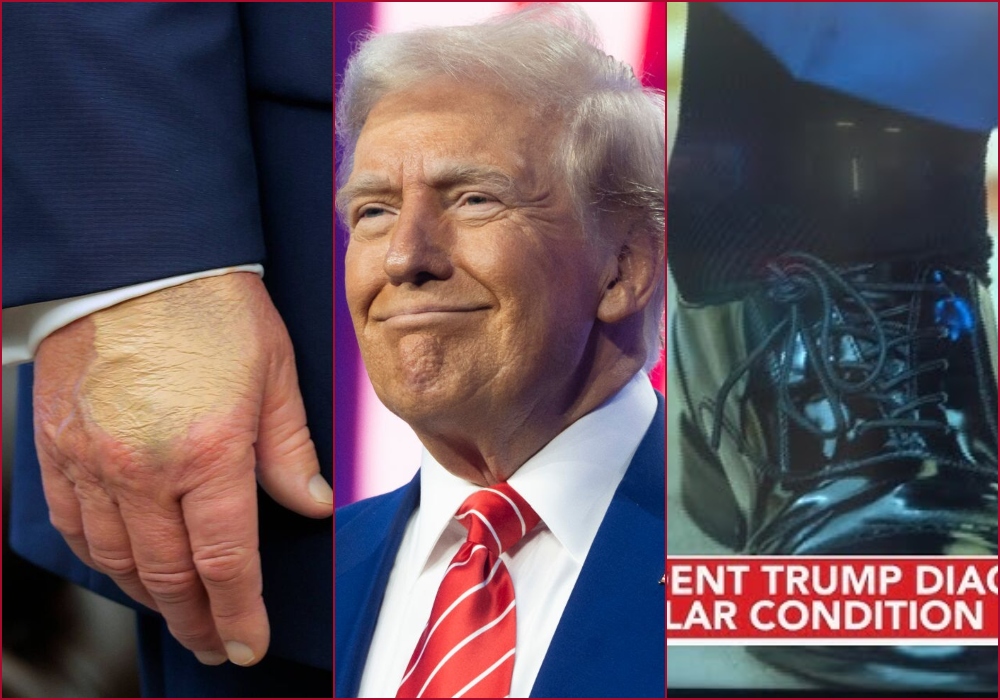Congresswoman Jasmine Crockett (D-TX) has launched a formal inquiry into what she calls a potential “cover-up” of President Donald J. Trump’s deteriorating health, raising legal and constitutional questions about the president’s capacity to perform his duties under Article II of the U.S. Constitution and the 25th Amendment.
In a letter addressed to White House Physician Captain Sean P. Barbabella, D.O., MC, USN, Crockett requested detailed clarification about the president’s physical and cognitive condition. The letter follows weeks of growing public scrutiny and viral footage showing what observers describe as visible weakness, slurred speech, and lapses in memory.
“The American people deserve the truth about the health of their president,” Crockett stated in her letter. “We’ve all seen the same videos, the same erratic behavior, the same troubling lapses in focus. If the President is unwell, transparency—not concealment—must guide the White House response.”

The inquiry could have significant constitutional implications, particularly if it leads to formal review of the president’s medical fitness under the Presidential Succession and Disability framework. Legal analysts note that while the president’s health records are considered private under federal law, misleading the public about material facts related to governance could raise issues under the Presidential Records Act and federal ethics standards.
Crockett’s letter specifically calls on Dr. Barbabella to confirm or deny:
- Whether the President has suffered a stroke, heart attack, or cognitive impairment within the past 15 years;
- Whether his medical condition interferes with his ability to discharge presidential duties;
- Whether assistive devices are used in private to manage mobility or balance issues;
- The cause of visible facial paralysis and mobility deterioration during recent appearances; and
- The medical rationale supporting official statements claiming the president is “in excellent health.”
The congresswoman also cited a July 2025 memorandum from Dr. Barbabella acknowledging that President Trump suffers from chronic venous insufficiency, a vascular condition that can cause leg swelling and discoloration. The memo further noted that the president takes daily aspirin as part of a “cardiovascular prevention regimen”—a measure generally discouraged for individuals over 70 without a prior cardiovascular event.
Legal scholars suggest that if the administration knowingly misrepresented the president’s medical condition, it could constitute a violation of public trust and undermine the government’s obligation to provide accurate information to Congress and the electorate.
“This matter is not just political—it’s constitutional,” said one constitutional law expert. “If the president’s health materially affects his ability to carry out the duties of office, the 25th Amendment provides a mechanism for transparency and, if necessary, succession. The question is whether the administration is being forthright about that possibility.”
Crockett’s call for accountability has also revived debate over presidential medical disclosure laws, which remain largely voluntary. Historically, presidents such as Woodrow Wilson, Franklin D. Roosevelt, and John F. Kennedy withheld serious health conditions from the public, a precedent that has sparked recurring debate about the limits of executive privacy.
For now, Rep. Crockett’s inquiry stands as one of the most direct challenges to the Trump administration’s assertions of presidential vitality—and it may pave the way for congressional oversight hearings or a formal review by the House Oversight Committee.
“The health of the president directly affects national security and the stability of government,” Crockett concluded. “Congress has a duty to ensure that transparency—not secrecy—defines the executive branch.”

